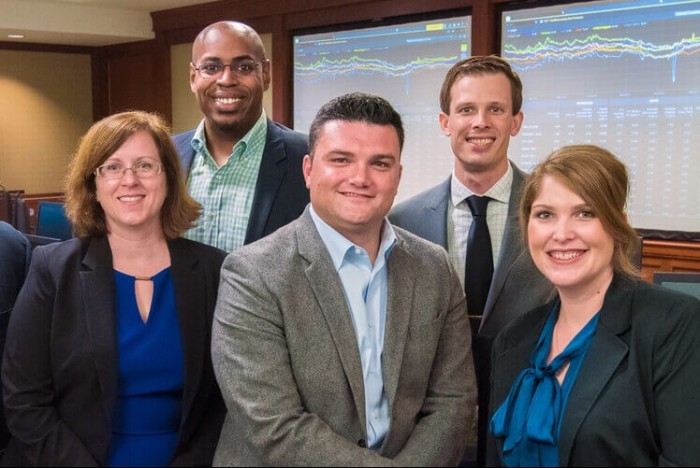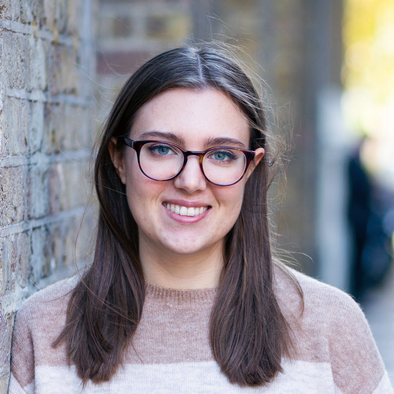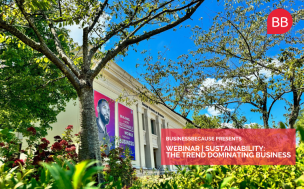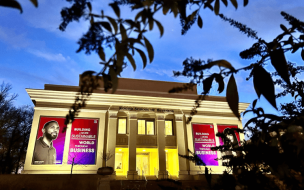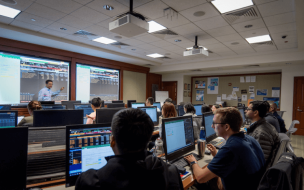We sat down with Jason Garner, director of admissions at American University’s Kogod School of Business, to find out more
When I meet Jason at the BusinessBecause office in late November 2018, he’s just about to embark on a two-week trip around India to meet with business school applicants. Aside from the long flight, he’s looking forward to speaking to prospective students.“I think that’s part of our roles as admissions professionals,” he says, “to have those conversations with folks and help them find their path.”
Jason has been the director of graduate admissions at for almost two years now, and before that was director of MBA admissions at The George Washington University School of Business.
At Kogod, the philosophy is ‘business as a force for meaningful change,’ and this is reflected in Jason’s role too. For Jason, the job of an admissions director is very much like “a career counselor or life coach.
“Specifically, for us, it’s about finding the right fit,” he adds. “I ask myself, ‘Are you someone that I think is bringing their experience into the classroom in a way that adds to the class and cohort?’”
"Our role is not a barrier, we’re not there to keep people out of business schools. We’re here to find the path that’s right for you."
A unique process
While the admissions process might be similar to other schools, Kogod's particular location, size, and mission all have a hand in making the application decisions unique, Jason believes.
“A lot of applicants want us to have a very regimented formula that shoots out a decision, but it’s much more subjective than that,” he explains. “So every piece of the application that we ask for is really meant to paint one picture or tell one narrative.”
Kogod is also unique in that GMAT or GRE scores aren’t required in a candidate’s application. The reason for that, Jason says, is to show that students “are more than just a test score to us.”
is a relatively small business school—there are just over 500 residential graduate students registered in Kogod's programs, with 76 in the full-time MBA program. Nonetheless, it has excelled in business school rankings over the past few years—Forbes ranked their MBA program in the top-70 in the US in 2017.
“Given that we’re a smaller school and we have a very strong collegial experience in our classrooms, we really want to make sure you’re a right fit for that environment,” Jason remarks. “That’s why we tend to focus not just on the quantitative process but the qualitative parts as well.”
“I think we definitely attract a student that’s excited to be in Washington, DC, to explore the city as an extension of our campus,” Jason notes. “You’re seeing more and more industry being attracted to the Washington area.”
Tips for success
So, how do you craft the perfect MBA application?
Emily Phipps (pictured) is a recent successful applicant to the full-time . She was initially attracted to the close-knit environment of the school and found that the size of the cohort certainly wasn't indicative of a lack of diversity.

“One thing that really intrigued me about Kogod was the variety of backgrounds that people were coming from professionally and personally,” she recalls. Emily herself came from a background in non-profits, and found that throughout the application process, she could let her experience speak for her.
“I was someone who hadn’t taken the GRE and hadn’t always planned on going to graduate school,” Emily explains. “But I found through the application process I could communicate my eagerness in a multidimensional way.
“My strengths, weaknesses, and truly what I wanted to get out of the program were considered with the same amount of respect and consideration as the quantitative parts because all of those things eventually play into how successful you’ll be.”
Jason himself knows where Emily succeeded in the application and interview process— “she had really done her research and she had a cohesive part to her story, but it was still really natural,” he explains.
“Through all the different pieces of the application, we should really feel that we’ve gotten a good chance to know who you are, what your background is, and what you’re trying to do,” he says.
“So many times I think candidates see each piece of the application as a very separate piece, but when I see it it’s all together. We’re looking for all of those things to flow together—I always encourage candidates to keep that in mind.”
As a successful applicant, Emily also has some valuable advice for fellow MBA applicants.
“There are different ways that you can go into an application process, are you trying to brag and prove that you already know everything?
"Or are you trying to say, ‘This is what I know and this is what I want to know by the time I finish your program’. The latter perspective is the one I took.”
Student Reviews
Kogod School of Business - American University
Clean and well maintained campus
I am completely enamored with this school. The entire student body is driven, inclusive, and highly intelligent. The decision to attend American University is not made haphazardly. Its close proximity to Washington DC, making it one of the most strategically located schools after Georgetown, means it's just a short train ride away. The campus is well-maintained, with mostly attractive buildings, although there are a few that are less appealing. Additionally, there are numerous excellent food options available. The wide range of clubs and organizations to join is remarkable. It is undeniably a school filled with immense passion.
City life
I’m having a wonderful time at American University. I love that I can get to a big city and still feel like a traditional campus. Sincerely, it is a school that may require some adjusting to, but in the end, it is a very good school with numerous opportunities for its students. The atmosphere in AU is so great that it pushes you in a positive way and offers every opportunity you could want.
Amazing helpful professors
American College is an incredible school with astounding teachers. Best professors I could have asked for at an amazing school. My opinion is that American University's professors are its greatest asset. They are extremely intelligent and always eager to assist their students. They go above and beyond in their classes to make sure that their students do their best.
AU Review
The workload is quite high and AU is definitely not an "easy" school. Students take their studies very seriously and can almost always find a group in the library, DAV, Starbucks or MGC. Courses can be quite ambitious if the right courses are offered and the admissions process can be confusing at times, but with the help of an advisor it is quite easy to navigate. The library can be crowded, and while it's not huge, there are plenty of other places to study on campus. The professors really want to help during office hours and interact with students. I've had good experiences with the professors and workload at AU, but it's an expensive city.
Majoring in Political and International Relations
The instructors are unique and the classes can be boring at times. Check-in is stressful (but it is everywhere). The workload is what I expected. The most popular majors are international relations and political science
I Love Being A Musical Theater Major
I love being a musical theater student, if you want to help behind the scenes, if you want to be an assistant director, if you want to be a director, if you want to write, you can do anything at this academy, very supportive, it's amazing, they are always there to help you. This is their working time. Even after the audition tells you what you did wrong, you can do better, or if you get picked, you know why they picked you, which is great
AU's Business Model
Overall, there were a lot of good opportunities at UA, both in terms of course range and faculty. However, I had a few complete misfires. People who shouldn't have taught at all. Like all universities, AU's business model is to hire hands-on assistants so they don't have to pay them extra or perform well. They are signed and if that does not work, they are not hired any more. The problem with this is that you end up with people who are unqualified and bring their own agendas, biases that may or may not be based on research. Most of the professors were absolutely fantastic.
AU - The Real Problem With Academics
Some teachers are amazing, some awful - typical of any school. But the real problem with AU is that many students don't care about academics as much as other things (eg, partying). The academics are really interrupted by the Greek life and the social life of the students. This makes it difficult for students interested in academics to get the most out of their school experience. Some students do not take classes seriously and do not respect teachers and other students. Courses and opportunities at UA are perfect for people who want to take advantage
American University - The Best Place to Study
They know their stuff - I chose American University because the campus is beautiful and the biology program is relatively small. But after the first semester, I realized that all the professors, especially the people in the science department, are experts in their field. They are enthusiastic and helpful in lecturing; even the TAs who teach the labs are amazing and engaging.
Engaging Students and Incredible Professors
I would 100% recommend this school. I am a Marine Corps Veteran and proud AU alum. NI received my BA in Comparative Politics at AU in 2017. It was engaging and worth every minute. I was constantly engaged with the material the material and was fascinated by the culture the school presented. As an older student I was nervous to go to a highly competitive college but with the culture of both student and staff it was enjoyable through and through.


